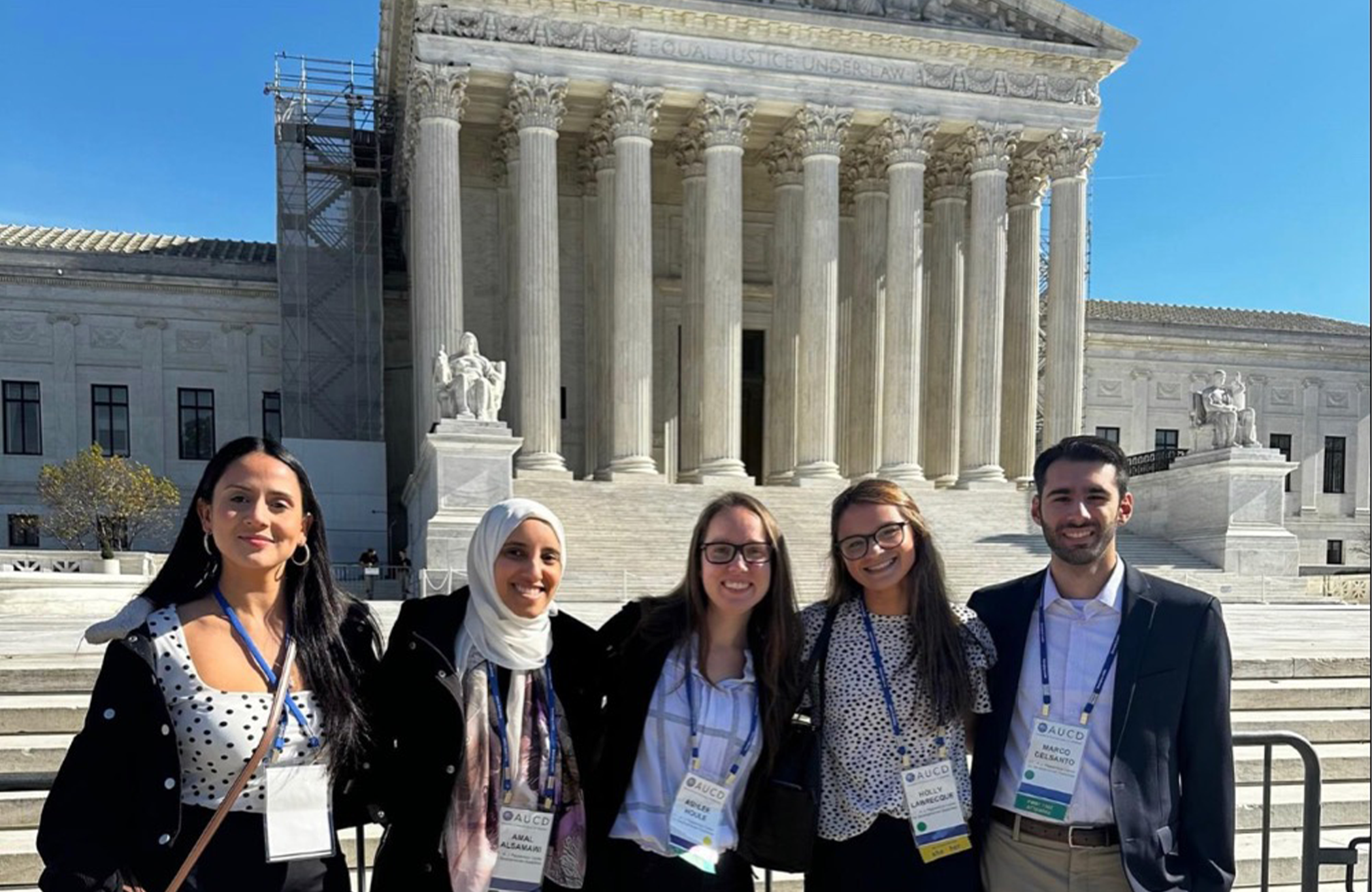September 26, 2025 | Vol. MMXXV | Issue 131
In this edition:
- Appropriations
- Department of Health and Human Services
- New Legislation
- AUCD Materials
- Words to Know
Appropriations
To avoid a government shutdown, Congress must approve a new
government funding package for FY26 by September 30 (when the government
funding year ends) or pass a Continuing Resolution (CR) that keeps the
government operating on current funding levels for a specified period. While
the Senate and House Appropriations Committees have marked up several funding
bills, including their Labor, Health and Human Services, Education, and Related
Agencies bills, and passed them out of committee, it appears Congress will be
unable to finish passing full-year appropriations legislation by the September
30 deadline. Therefore, each party introduced their own version of a CR, both
of which fund the government at the previous fiscal year’s spending levels with
some changes to policy and new spending.
House Republicans released a relatively “clean” CR to extend
government funding through November 21. Congressional Democrats also released a
CR to extend government funding through October 31. It would reverse the
Medicaid cuts in H.R.1 (the “One Big, Beautiful Bill Act” passed into law by
Republicans through the reconciliation process) and permanently extend the
Affordable Care Act (ACA) premium tax credits. Democrats are pushing for a
bipartisan negotiation that would extend the tax credits and reverse the
Medicaid cuts – see the House Democrats’ bill here and the Senate Democrats’
bill here. The House passed its CR along party lines, but the Senate voted
against it 44-48—Senator John Fetterman (D-PA) was the only Democrat to vote
yes, while Senators Rand Paul (R-KY) and Lisa Murkowski (R-AK) were the only
Republicans who voted against it. Democrats’ CR also did not have enough votes
to pass in the Senate (47-45).
Key Takeaways
The Office of Management and Budget (OMB) has directed
agencies to prepare mass firing plans for a potential government shutdown, as
Republicans and Democrats in Congress remain at an impasse. Some programs will
continue to operate regardless of a government shutdown, including Social
Security, Medicare, and a few others. The memo from OMB outlines a shutdown
plan that goes beyond what typically has happened in the past—OMB told agencies to “identify programs, projects and activities where discretionary funding will
lapse Oct. 1 and no alternative funding source is available. For those areas,
OMB directed agencies to begin drafting RIF plans that would go beyond standard
furloughs, permanently eliminating jobs in programs not consistent with
President Donald Trump’s priorities in the event of a shutdown.”
The expiring ACA tax credits have been a source of
contention between Democrats and Republicans in Congress. Democrats established
enhanced Affordable Care Act tax credits under the American Rescue Plan, which
increased enrollment in ACA Marketplaces. The enhanced provision made more
people eligible for the tax credits and increased the amount of tax credits.
The enhanced version will expire on December 31, and their expiration could
result in millions more uninsured people and higher premiums. Learn more from
KFF here.
Plain Language
Congress needs to pass a government spending bill to make sure the government is funded in 2026, also called “appropriations.” Appropriations means money that is set aside by Congress for a particular use. The appropriations process happens once a year. Money is sometimes requested by the President’s Administration or by Congress for a specific use.
Right now, Congress is in the middle of its appropriations process for 2026 funding. The Senate and House Appropriations Committee passed some 2026 appropriations bills but they haven't finished this process. Congress needs to pass a government funding bill by September 30, which does not give them a lot of time. This is why Members of Congress are going to pass a Continuing Resolution or a “CR.” A CR is a funding bill that makes sure the government has enough money for a few more months. It gives Members of Congress a little more time to finish their full year appropriations bill.
Republicans in the House of Representatives introduced a CR that Democrats in Congress didn't like. Democrats in the House and Senate introduced their own CR, which Republicans didn’t like. The Democrats’ bill does two things that would affect healthcare:
It would stop the big cuts to Medicaid that are going to happen because of H.R.1, or the “One Big, Beautiful Bill.”
It would help people continue saving money on healthcare using something called “tax credits” – explained below.
Many people are able to pay less for healthcare every month because of something called “tax credits.” A tax credit is an amount of money that people can save when they file their taxes. Usually, they are a reward from the federal government. For example, if the federal government wants more people to get health insurance, they might offer a tax credit to people who get health insurance. The Affordable Care Act has special tax credits that will end on December 31, 2025. Democrats want to make sure that people can still use these tax credits in the future so they can save money and afford healthcare. Their CR includes a piece that makes those tax credits last forever.
If Congress doesn’t pass a spending bill by the deadline, the government would shut down. This means many departments would stop working, which could affect people who get benefits from the government. The Office of Management and Budget is a government agency that makes decisions about how the federal government works and how money is spent. The Office of Management and Budget told other government agencies that they should get ready to fire a lot of people who work for the government if Congress doesn’t pass a spending bill by the deadline. Usually during a government shutdown, people who work for the government might have to stop working and stop getting paid for a short amount of time. This time, the administration is saying that they might fire people permanently.
Read Newsletter










